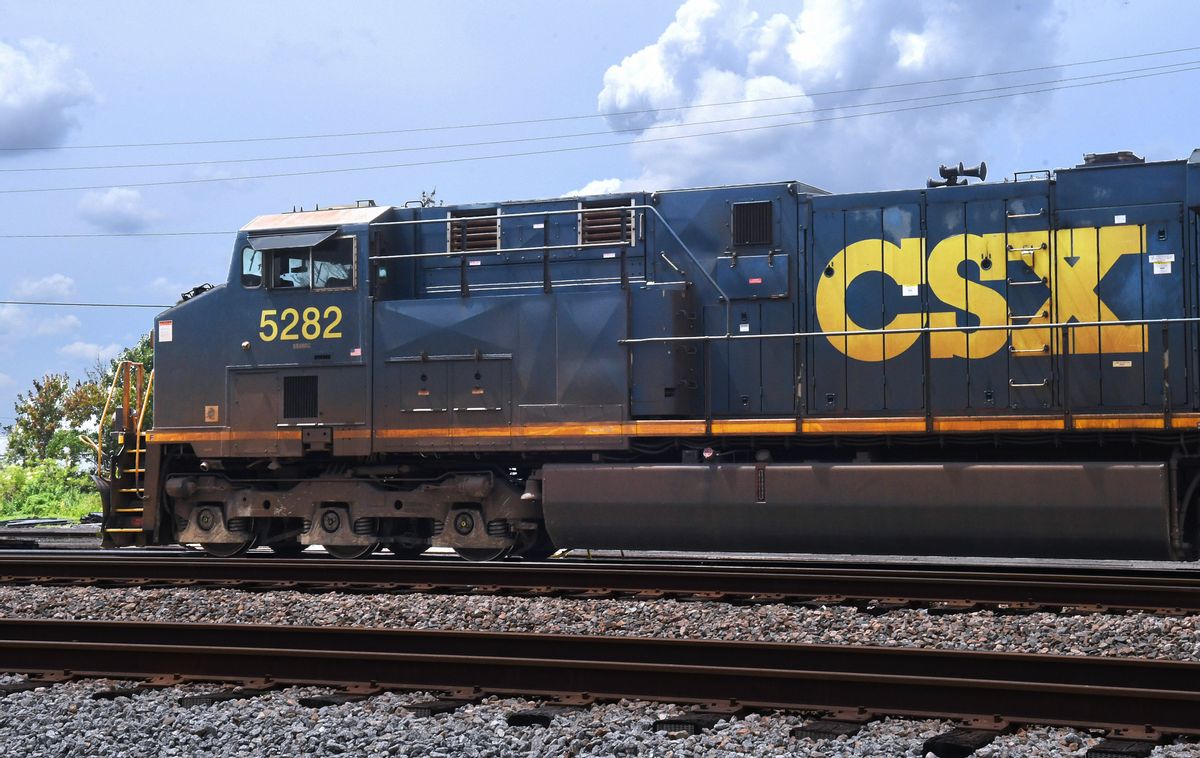The Biden White House on Thursday announced a tentative agreement between unions and rail carriers that reportedly includes a win for workers on sick leave, an issue central to the dispute that nearly resulted in a nationwide strike.
The Washington Post reported that the deal, which still must be approved by union members, would give rail workers "the ability to take days off for medical care without being subject to discipline."
The Post's Lauren Kaori Gurley noted on Twitter that "workers will receive voluntary assigned days off and a single additional paid day off. (They previously did not receive sick days.)"
"The agreement provides members with the ability to take unpaid days for medical care without being subject to attendance policies," Gurley added.
In a statement Thursday morning, President Joe Biden said the deal represents "a win for tens of thousands of rail workers who worked tirelessly through the pandemic to ensure that America's families and communities got deliveries of what have kept us going during these difficult years. "
"These rail workers will get better pay, improved working conditions, and peace of mind around their healthcare costs: all hard-earned," Biden continued. "The agreement is also a victory for railway companies who will be able to retain and recruit more workers for an industry that will continue to be part of the backbone of the American economy for decades to come."
Sick leave was the key sticking point in the tense and consequential negotiations between hugely profitable freight rail carriers and their employees, who have been working for three years without a contract as railroads see booming profits. It's not clear whether the agreed-upon policy changes will be sufficient for union members.
"It's definitely premature to be hailing Biden as an economy-saving dealmaker," argued HuffPost labor reporter Dave Jamieson. "Workers haven't even been walked through the particulars yet, let alone determined whether they're willing to accept it."
The major unions that had been preparing to strike did not immediately respond to the tentative deal, which includes a 24% raise for rail workers by 2024 and an immediate 13.5% raise.
A statement from the National Carriers' Conference Committee, which represents the major railroads, contained no mention of attendance policies that unions said have been ruining their members' lives.
"Our members are being terminated for getting sick or for attending routine medical visits as we crawl our way out of a worldwide pandemic," the heads of two rail unions said Sunday.
The White House announced the agreement after frenzied talks between administration officials, including Labor Secretary Marty Walsh, and representatives of the unions and rail companies over the past 24 hours—a last-ditch effort aimed at averting a strike with massive implications for the U.S. economy.
The unions, for their part, accused rail carriers of engaging in "corporate extortion" by blocking shipments and shuttering other operations before a single worker had walked off the job, a signal that companies were moving in the direction of a damaging lockout.
The White House has faced significant criticism over its role in the dispute: Last month, an emergency board formed by Biden recommended a compromise deal that excluded sick leave improvements that rail workers had been demanding and fell short in other key areas, including healthcare costs.
On Wednesday, Sen. Bernie Sanders, I-Vt., blocked a GOP effort to force rail workers to accept the emergency board's recommended agreement.



Shares